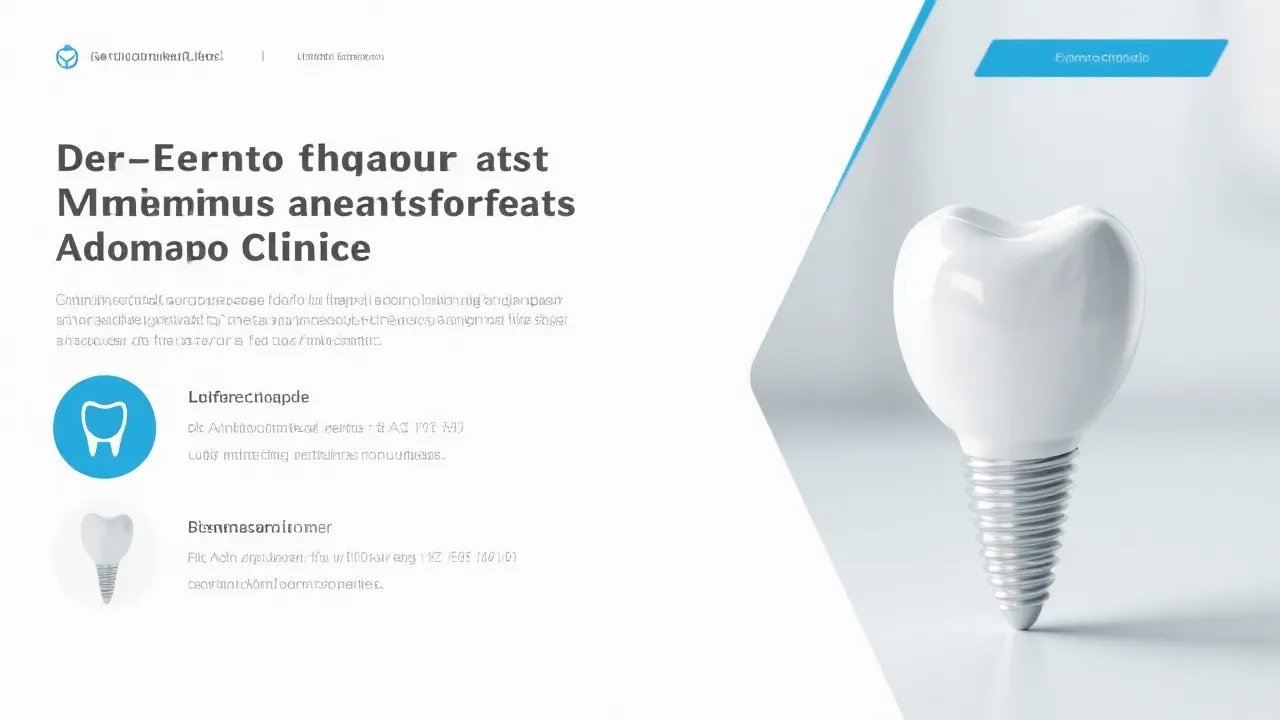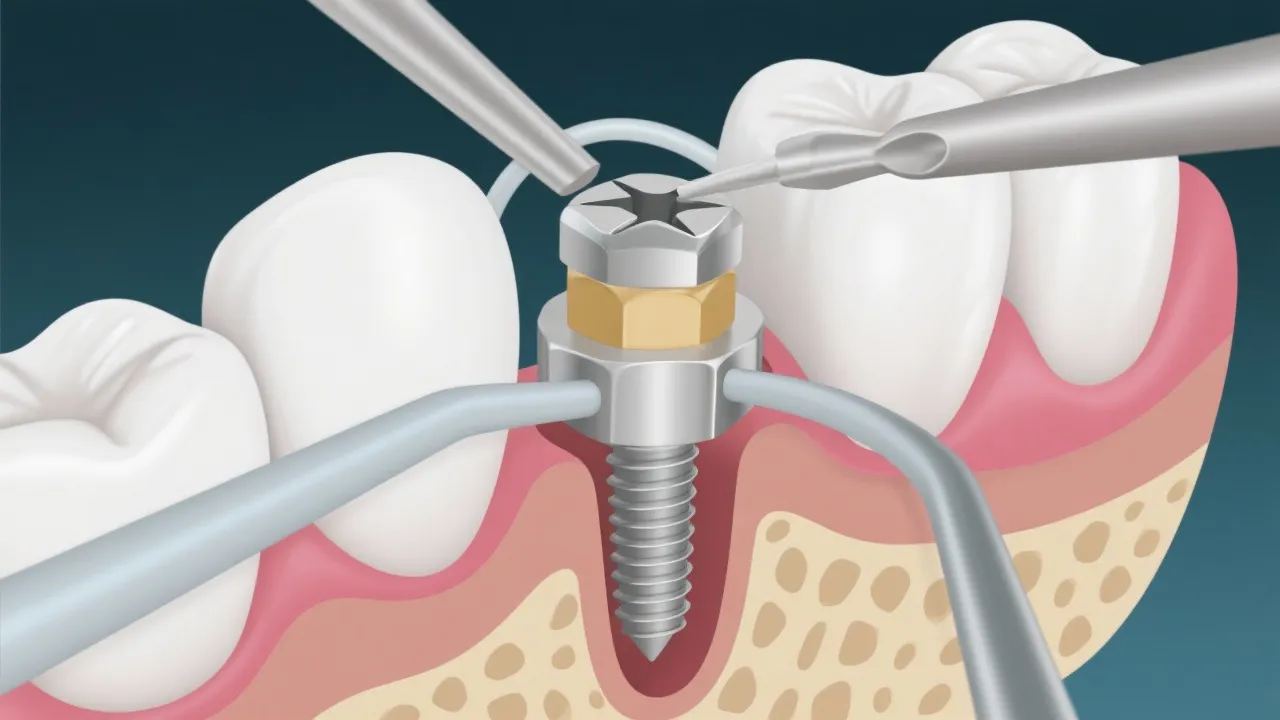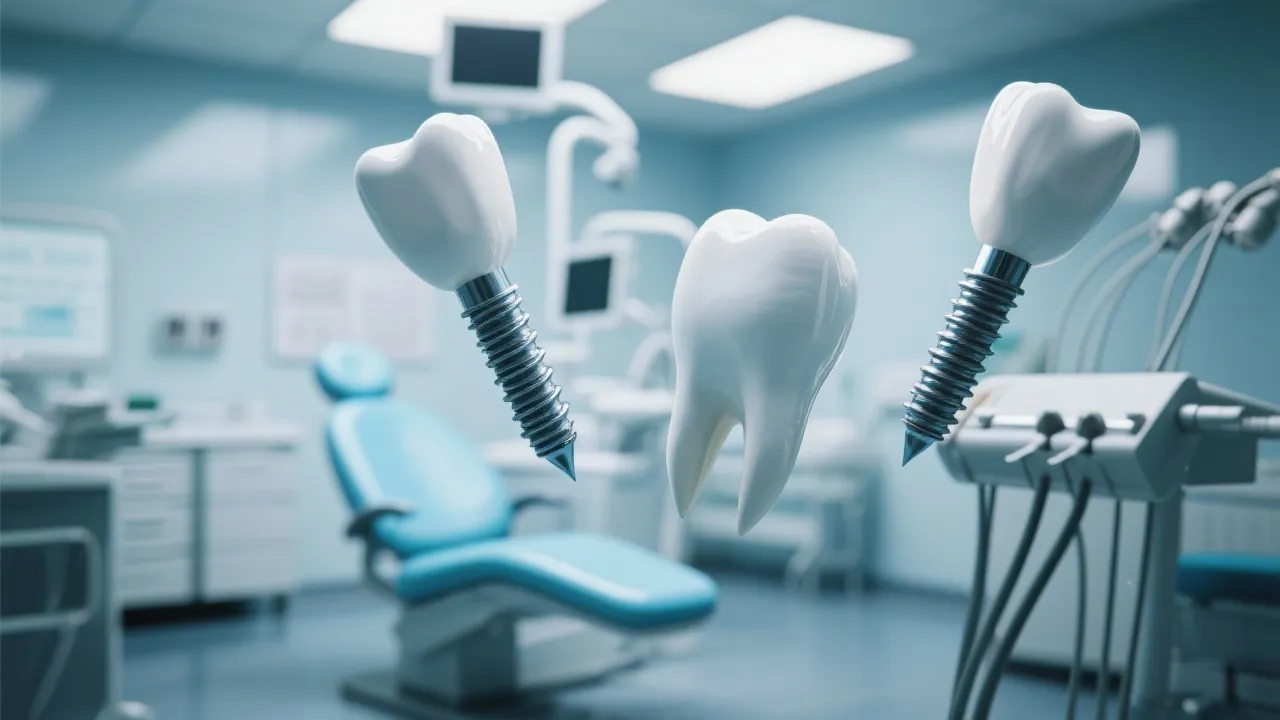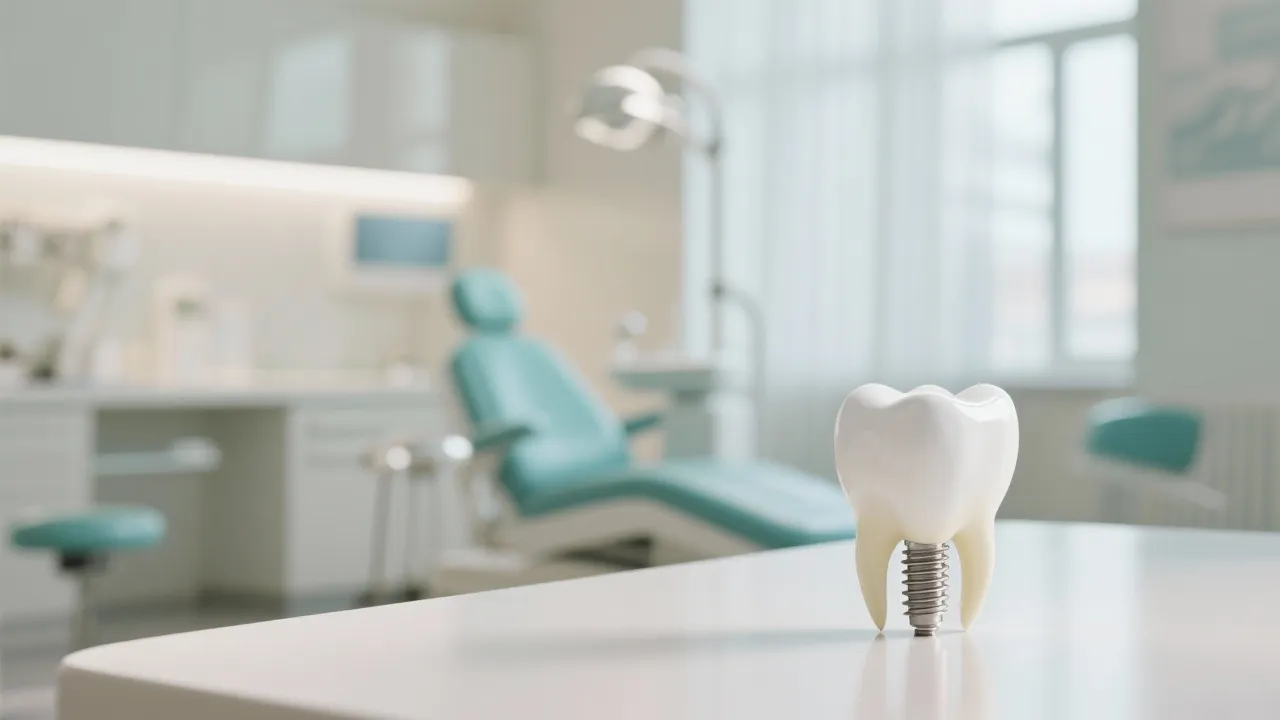Understanding Dental Implants in Ubá
This guide delves into dental implants available near the city of Ubá. Dental implants are artificial roots used to replace missing teeth. With their rising popularity in Brazil, implant procedures have become a significant focus for dental professionals. Understanding available options can help individuals make informed decisions about their oral health, acknowledging the nuances of treatment and the cost landscape in Portuguese-speaking regions.
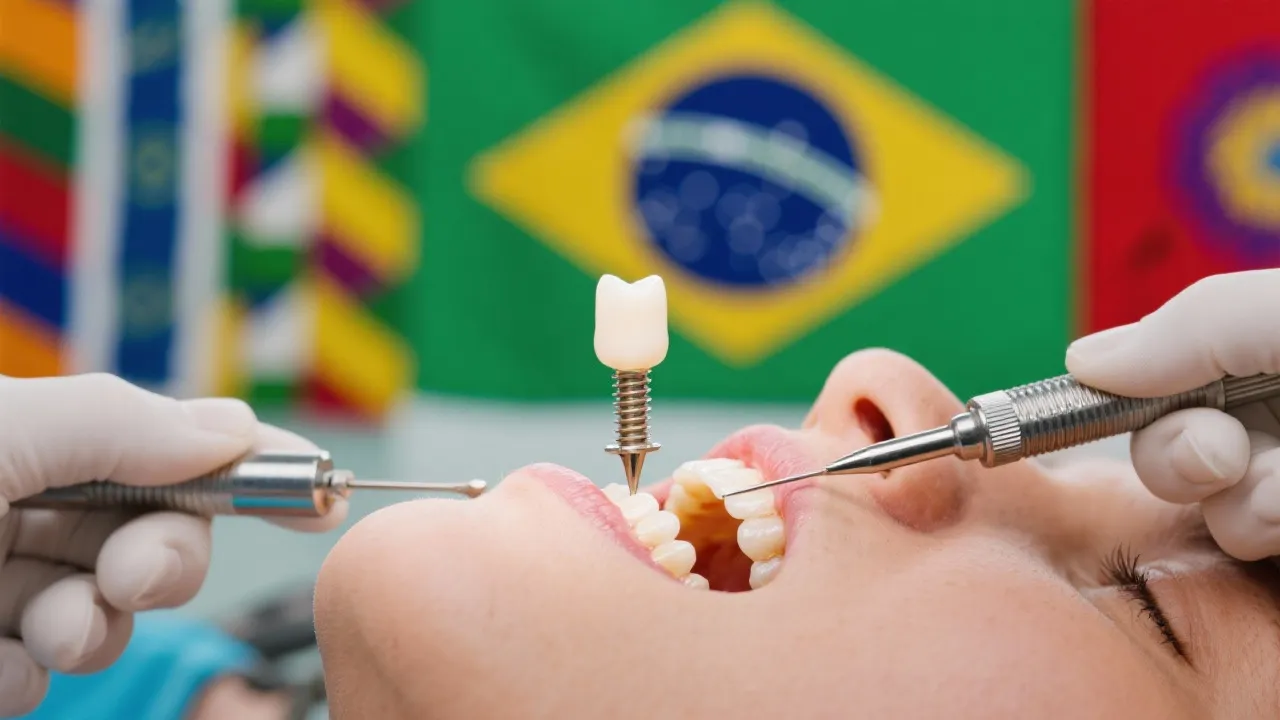
Introduction to Dental Implants
Dental implants are becoming an increasingly popular choice for individuals seeking solutions for missing teeth. Essentially, these implants serve as replacements for natural tooth roots and provide the foundation for fixed or removable replacement teeth designed to match natural teeth. In cities like Ubá, the demand for dental implants has grown due to their durability, functionality, and aesthetics. These implants not only restore the appearance of a smile but also play a crucial role in maintaining the structure of the jawbone, preventing bone loss that can occur after tooth loss.
Benefits of Dental Implants
Dental implants come with several advantages that appeal to patients and dental professionals alike. Firstly, they offer an improved appearance since they are designed to look and feel like natural teeth. This aesthetic benefit extends beyond just the implant; it can enhance one's confidence and overall self-esteem. Patients often report a significant boost in how they feel about their smile after receiving implants.
Moreover, dental implants contribute to better oral health as they do not require reducing other teeth like traditional bridges. This preservation of surrounding teeth allows for a healthier and more natural dental structure. Moreover, since dental implants are anchored directly into the jawbone, they provide exceptional stability and support. This stability enhances comfort, allows individuals to eat with ease, and improves speech, as there’s no fear of slippage that might occur with dentures.
In terms of longevity, dental implants are designed for permanence; with proper care, they can last a lifetime. This durability makes them a worthy investment compared to other restorative options, which may require frequent replacements or adjustments over time. Additionally, implants are easy to care for, as they can be brushed and flossed just like natural teeth, promoting better oral hygiene practices.
Understanding the Costs
When considering dental implants, understanding the associated costs is crucial. While the price of dental implants can vary significantly across regions and clinics, here are some factors that influence their pricing: the complexity of the procedure, the type of materials used, the expertise of the dental professional, and the geographical location. While some clinics might advertise lower prices to attract customers, it is essential to consider the quality of materials and the experience of the dentist, as these can significantly impact the long-term success of the implants.
In addition to the cost of the implants themselves, there can be other expenses associated with the procedure, such as pre-operative evaluations, imaging, additional surgeries (like bone grafts if necessary), and post-operative follow-up visits. Patients should discuss these potential costs during their initial consultations with their dental care providers to avoid any surprises.
Cost of Dental Implants in Portuguese-Speaking Countries
| Country | Currency | Price Range |
|---|---|---|
| Brazil | BRL | R$3,000 - R$8,000 |
| Portugal | EUR | €1,000 - €2,000 |
Patients in different cities may find that prices vary widely even within the same country, so it is important to research local clinics and consult with them about specific pricing models. Remarkably, many specialists offer financing options and payment plans to help make dental implants more accessible to a wider range of patients.
Finding Affordable Dental Solutions
For those seeking low-cost dental implants, several online resources provide valuable information. Websites like Dental Views offer comprehensive guides on affordable dental treatments. Meanwhile, platforms such as DentaVacation assist patients in exploring dental tourism options, presenting an opportunity to travel for cost-effective dental care. By researching options in other countries known for competitive pricing, such as Mexico or Costa Rica, patients can potentially save significant amounts on their procedures. However, it is essential to carefully consider the credentials of any practitioners you may visit abroad.
Here is a brief comparison of such resources that can help guide individuals toward affordable dental solutions:
| Website | Features |
|---|---|
| Dental Views | Focuses on low-cost implant solutions with extensive FAQs and pricing information, aiding patients in understanding their options better. |
| Atlantic Dental Group | Offers a range of dental services, including implants and emergency care, with easy appointment scheduling and access to patient testimonials to help guide decision-making. |
| DentaVacation | Provides cost comparisons and travel arrangements for dental tourism, making it easier for patients to find affordable care overseas and to compare prices. |
Source: DentalViews, Atlantic Dental Group, DentaVacation
Steps to Obtain Dental Implants in Portuguese-Speaking Countries
- Research and Consultation: Begin by researching potential clinics and contacting them for initial consultations. This phase involves understanding the procedure and discussing individual requirements with professionals. Many clinics offer free consultations that can provide valuable insights without any financial commitment.
- Assessment and Planning: The dentist will conduct a thorough evaluation, including the assessment of jawbone quality and taking necessary x-rays. A tailored treatment plan will be crafted that outlines all necessary steps, expected outcomes, and alternate solutions if bone grafting is needed.
- Surgery and Healing: Placement of the implants involves minor surgery that can often be done in an outpatient setting. After surgery, a healing period is necessary. During this time, osseointegration occurs where the implant fuses with the jawbone. Following the procedure, patients will receive specific aftercare instructions to promote healing.
- Attachment of Teeth: After healing, generally ranging from three to six months depending on the individual, an abutment is placed, followed by the new teeth, crafting a natural appearance and functionality. It is at this stage that final adjustments can be made to match the color and shape of the surrounding teeth for a seamless appearance.
FAQs
- How do dental implants differ from dentures?
Dental implants provide a permanent solution, integrating into the jawbone, unlike dentures, which are removable and can shift or slip during use. - Are dental implants painful?
The implant procedure is generally conducted under local anesthesia, minimizing discomfort. During recovery, any pain is typically managed with over-the-counter medication or prescribed pain relievers, and most patients report manageable soreness. - What is the success rate of dental implants?
Dental implants have a high success rate, often exceeding 95%, especially when performed by trained professionals with appropriate follow-up care. Factors like oral hygiene and lifestyle can influence individual outcomes as well. - Can anyone get dental implants?
Ideal candidates are those with healthy gums and enough jawbone to support the implant, free from conditions that impede healing. A comprehensive evaluation will identify candidates and determine if additional procedures, such as bone grafting, are necessary.
Conclusion
Choosing dental implants involves various considerations, including costs, procedures, and selecting the right professional. Exploring affordable options and understanding the process ensures a smooth journey toward improved oral health. As with any medical procedure, conducting thorough research and consulting with experienced professionals is paramount for optimal results. Patients are encouraged to seek second opinions and weigh their options carefully to find a solution that fits their needs, expectations, and budget.
Disclaimer: The above information comes from online resources, and the data is as of October 2023. Dental implant prices are for reference only and may vary by region, clinic, and doctor.
Reference links and additional information can be found at: Rubi Odonto, Odontologia Velasco, DentalVidas.
The Future of Dental Implants
As technology in the field of dentistry continues to evolve, it is anticipated that the future of dental implants will become even more sophisticated, integrating advancements in materials and techniques. For example, the development of 3D printing technologies can potentially revolutionize how dental implants are manufactured, allowing for highly customized solutions tailored to the unique anatomy of each patient’s oral structure. This not only enhances the precision of placements but may also reduce the overall treatment time significantly.
Furthermore, biocompatible materials such as zirconia are gaining popularity, providing an aesthetic alternative to traditional titanium implants without compromising functionality. As research continues to explore the integration of dental implants with biological processes, the eventual goal is to create implants that not only support artificial teeth but also promote regeneration within the jawbone itself, leading to improved long-term outcomes for patients.
Another significant trend is the rise of digital dentistry, where digital impressions and virtual simulations can enhance the pre-surgical planning phase, allowing for better forecasts of placement success and patient-tailored approaches. Additionally, augmented reality (AR) and virtual reality (VR) technologies have the potential to assist in training dental professionals by providing immersive experiences that replicate real-life scenarios in a controlled environment.
Patient Education and Support
Patient education remains vital throughout the process of obtaining dental implants. Dental practitioners are encouraged to provide resources and support systems that help patients understand their options and the steps involved in the implant procedure. Information should cover not just the surgical aspects but also post-operative care, lifestyle changes, and the importance of maintaining oral hygiene to ensure the longevity of implants.
Support groups and online forums can provide additional resources for patients to connect with others who are undergoing similar procedures, fostering a sense of community and shared experiences. These groups can offer valuable insights, practical advice, and emotional support, which can be comforting during what is often a life-altering process.
Conclusion on Future Trends
In conclusion, as dental technology evolves, patients can expect more reliable, efficient, and aesthetically pleasing options for dental implants. Staying informed about advancements in the field, along with thorough consultations with dental professionals, can help prospective implant patients make choices that suit their individual health and lifestyle needs. Ultimately, dental implants not only restore function and aesthetics but also greatly enhance overall quality of life, making them a remarkable achievement in modern dentistry.
-
1

Reducing Costs and Enhancing Technology in Solar Panels
-
2

Affordable Life Insurance Options for Seniors
-
3

Comprehensive Guide to Choosing the Right Smartphone
-
4

Unlock Affordable Online Learning: A Seniors’ Guide to Economical Educational Opportunities
-
5

Discover the Keys to Landing Your Perfect Work-from-Home Job: An Essential Guide







